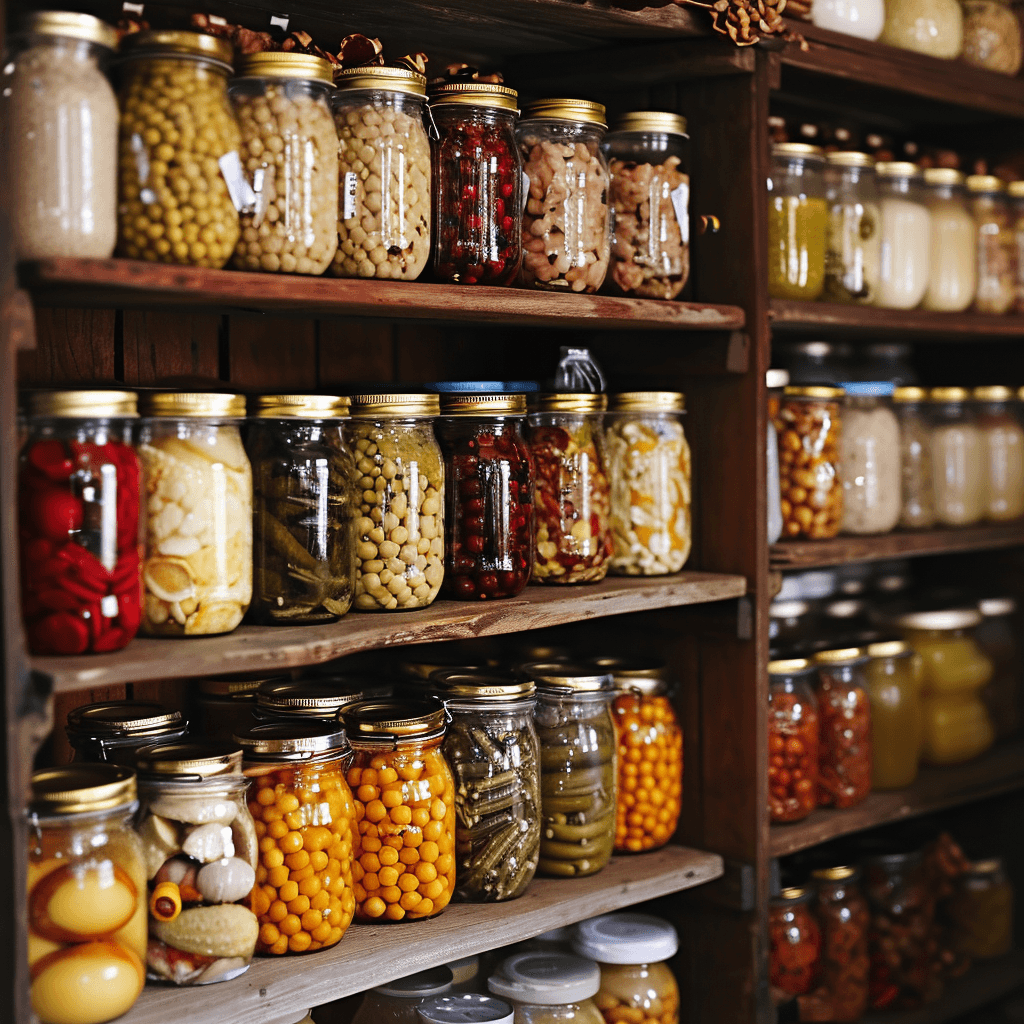So, have you ever thought about what it would be like to live off grid? You know, no electricity, no running water, just living completely self-sufficiently. It’s definitely a lifestyle that takes some getting used to, but there’s something so liberating about being able to live independently from the grid. One of the things you’ll need to consider if you ever decide to go off grid is food storage and is food storage a good idea?
Food storage is actually a really good idea for off-grid living. Think about it – when you’re living off grid, you don’t have the convenience of a nearby grocery store to rely on. So, having a well-stocked food storage can be a lifesaver. Plus, it allows you to be prepared for any emergencies or natural disasters that might occur.
In this article, we’ll go into more detail about the benefits of food storage for off-grid living. We’ll talk about the different types of food storage options available, as well as how to properly store and maintain your food. So, if you’re interested in learning more about how food storage can be a game-changer for your off-grid lifestyle, keep reading. You won’t want to miss it!
Living Off-Grid
Living off-grid is a lifestyle choice that involves disconnecting from the traditional power grid and relying on alternative sources of energy. Many people choose to live off-grid in order to reduce their environmental impact and become more self-sufficient and independent. While there are many challenges associated with off-grid living, one of the key benefits is the ability to create a sustainable food storage system. In this article, we will explore the importance of food storage for off-grid living and the various advantages it offers.
Disconnecting from the Grid
When you choose to live off-grid, you are intentionally disconnecting yourself from the centralized power grid. This means you are no longer reliant on utility companies for your electricity needs. Instead, you generate your own power using methods such as solar panels, wind turbines, or hydroelectric systems. This disconnection from the grid allows you to have more control over your energy consumption and reduces your reliance on fossil fuels.
Reducing Environmental Impact
Living off-grid is an environmentally friendly approach to life. By generating your own power, you are reducing your carbon footprint and contributing to the fight against climate change. Additionally, off-grid living often involves implementing sustainable practices such as rainwater harvesting, composting, and utilizing natural building materials. Adding a food storage system to your off-grid lifestyle further reduces your environmental impact by enabling you to store and preserve food without the need for energy-intensive refrigeration methods.
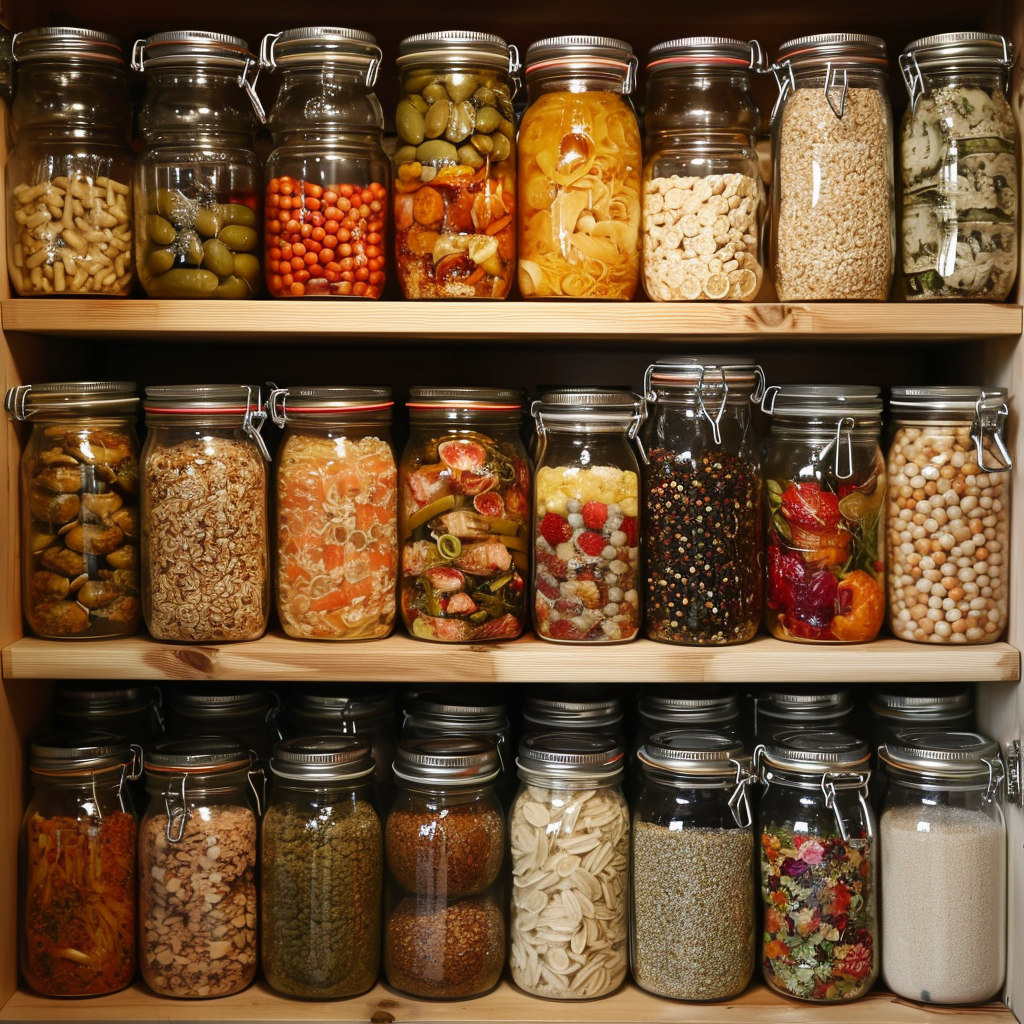
Self-Sufficiency and Independence
One of the main motivations for living off-grid is the desire for self-sufficiency and independence. By disconnecting from the grid and relying on alternative energy sources, you gain a sense of control over your own life. This self-sufficiency extends to your food supply as well. Having a food storage system allows you to navigate potential disruptions in the food supply chain, providing you with a sense of security and peace of mind. You no longer have to rely solely on grocery stores or delivery services, as you have the ability to store and preserve your own food.
Challenges of Off-Grid Living
While living off-grid offers many benefits, it also comes with its fair share of challenges. One of the main challenges is the limited access to resources. Depending on your location, you may be located far from grocery stores or other food sources. This means you need to plan ahead and rely on your food storage system to meet your nutritional needs. Additionally, off-grid living often exposes you to unpredictable conditions such as weather events or natural disasters, which can further disrupt the availability of food. Finally, off-grid living requires a higher reliance on alternative energy sources, which can be more unpredictable and require some adjustment.
The Importance of Food Storage
Given the challenges associated with off-grid living, having a proper food storage system is essential. Food storage serves multiple purposes, including ensuring food security, coping with emergencies, and promoting long-term sustainability.
Ensuring Food Security
Food security is the ability to access sufficient, safe, and nutritious food at all times. In off-grid living, where resources may be limited or access to conventional food sources may be difficult, having a food storage system becomes crucial. It allows you to have a steady supply of food at all times, regardless of external factors such as weather conditions or disruptions in the supply chain.
Coping with Emergencies
Living off-grid often means being more exposed to emergencies or unexpected events that may disrupt the availability of food. Having a well-stocked food storage system ensures that you are prepared for any emergencies, such as power outages, natural disasters, or even personal emergencies that may prevent you from being able to leave your property. In these situations, your food storage system becomes a lifeline, providing you with the sustenance you need to survive until conditions improve.
Long-Term Sustainability
Off-grid living is all about long-term sustainability and reducing your environmental impact. By implementing a food storage system, you are able to extend the shelf life of your food and reduce waste. This promotes sustainable consumption practices and ensures that you are making the most of the resources available to you. Additionally, having a food storage system allows you to take advantage of seasonal produce or local harvests, preserving the abundance of the harvest for use throughout the year.
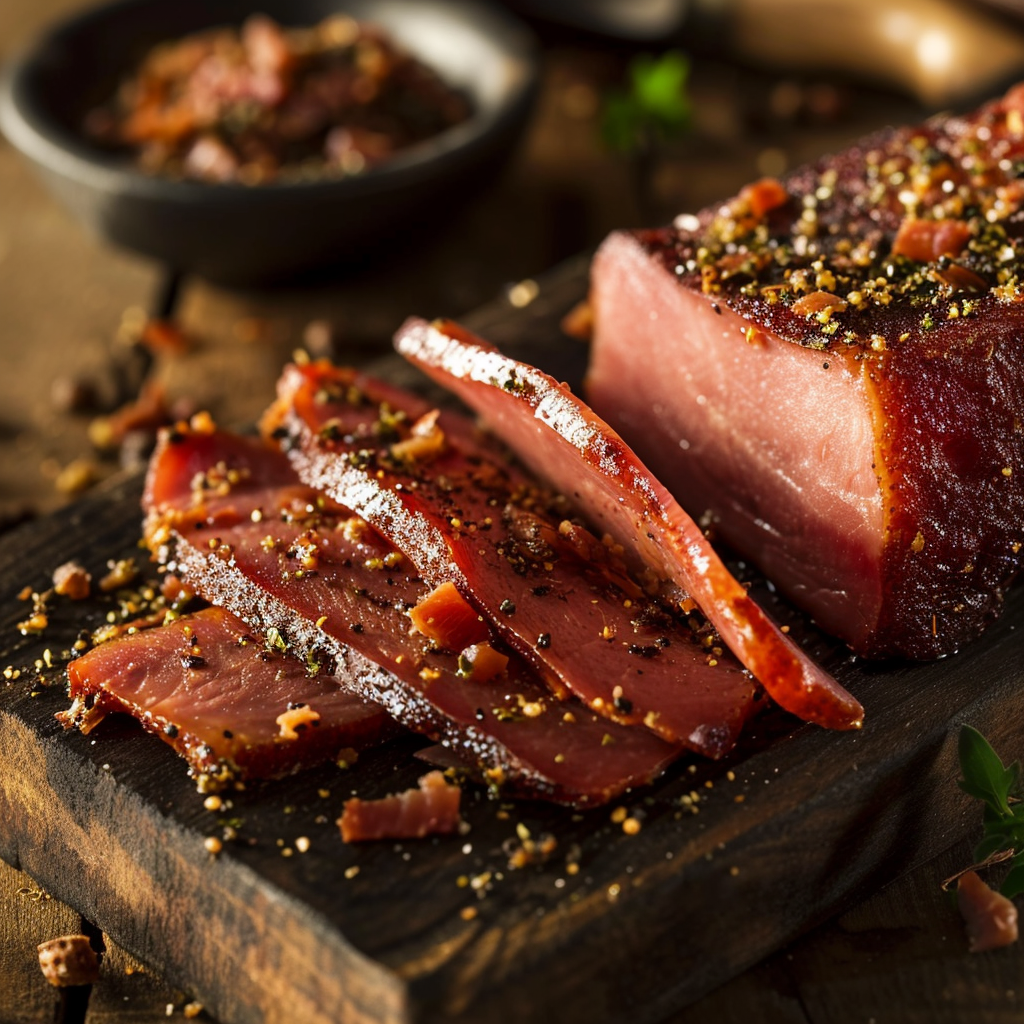
Types of Food Storage
There are various methods of food storage that are well-suited for off-grid living. These methods utilize different techniques to preserve food and extend its shelf life without the need for energy-intensive refrigeration.
Canned and Jarred Foods
Canning and jarring foods have long been popular methods of food preservation. The process involves sealing cooked or raw food in airtight jars or cans, which prevents spoilage and bacterial growth. This method is particularly well-suited for preserving fruits, vegetables, and sauces. Canned and jarred foods have a long shelf life, often ranging from one to five years, making them an excellent choice for off-grid living.
Dehydrated and Freeze-Dried Foods
Dehydration and freeze-drying are both effective methods of reducing the moisture content in food, which inhibits the growth of bacteria and microorganisms. Dehydrating food involves removing moisture through hot air or sunlight, while freeze-drying involves freezing the food and then removing the ice crystals through a process called sublimation. Both methods preserve the nutritional value of the food while significantly extending its shelf life. Dehydrated and freeze-dried foods are lightweight, making them ideal for long-term storage and portability.
Root Cellars and Cold Storage
Root cellars and cold storage areas are traditional methods of food preservation that exploit naturally cold and humid conditions to extend the shelf life of fresh produce. These underground or semi-underground storage spaces maintain a cool and stable temperature throughout the year, which helps slow down the ripening and decay process. Root cellars are particularly suitable for storing root vegetables, apples, and other produce that can tolerate cool and humid environments.
Advantages of Food Storage for Off-Grid Living
Implementing a food storage system offers numerous advantages for those living off-grid.
Reduced Dependency on Commercial Supply
By having a well-stocked food storage system, you can reduce your dependency on commercial food sources. This is particularly advantageous in remote locations where access to grocery stores may be limited or unreliable. Instead of relying on the availability and transportation of food, you can rely on your stored supplies to meet your needs.
Cost Savings
Food storage can also bring cost savings in the long run. Buying food in bulk or during harvest seasons can be more economical than purchasing small quantities from stores throughout the year. By taking advantage of local and seasonal produce, you can reduce your overall food expenses and make the most of your off-grid lifestyle.
Enhanced Health and Nutrition
Having a food storage system allows you to store a variety of nutritious foods that can help maintain a balanced diet. During off-seasons or when fresh produce is not readily available, you can still rely on stored fruits, vegetables, and other nutritious foods to meet your dietary needs. This ensures that you continue to have access to a diverse range of vitamins, minerals, and other essential nutrients that are crucial for maintaining good health.
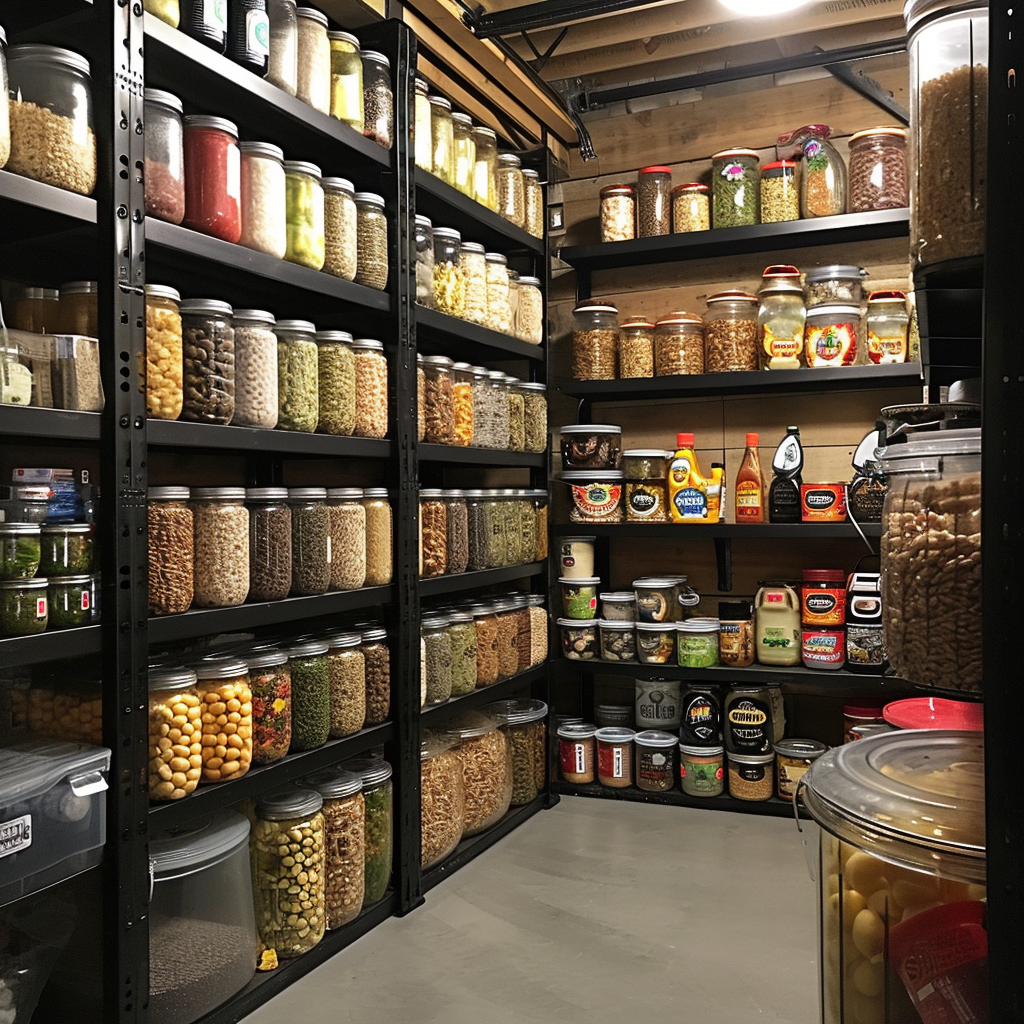
Food Preservation Methods
There are various food preservation methods that can be used in conjunction with a food storage system to maximize its effectiveness. These methods help maintain the quality and safety of stored food over an extended period of time.
Canning and Fermentation
Canning involves heating foods in glass jars to kill bacteria and create a vacuum seal. This method effectively preserves the food and prevents spoilage. Fermentation, on the other hand, is a natural preservation method that uses the process of lacto-fermentation to create an environment that promotes the growth of beneficial bacteria. This method is commonly used for preserving pickles, sauerkraut, and other fermented vegetables.
Dehydration and Freezing
Dehydration and freezing are excellent methods for preserving the nutritional content of food while extending its shelf life. Dehydration removes moisture from the food, inhibiting the growth of bacteria and microorganisms. Freezing, on the other hand, slows down the enzymatic reactions that cause spoilage. Both methods help maintain the flavor and texture of the food while allowing it to be stored for extended periods.
Pickling and Salting
Pickling and salting are traditional methods of food preservation that involve immersing the food in a solution of vinegar or saltwater. These methods create an environment that inhibits the growth of bacteria, which in turn prevents spoilage. Pickling is commonly used for preserving vegetables, while salting is often used for meat and fish.
Building a Food Storage System
Building a food storage system for off-grid living requires careful planning and consideration. Here are some steps to help you get started:
Assessing Dietary Needs
Before you begin building your food storage system, it is important to assess your dietary needs. Consider the number of people in your household, their dietary preferences, and any specific dietary restrictions or allergies. This will help you determine the types and quantities of food you should store.
Calculating Food Quantities
Once you have assessed your dietary needs, you can begin calculating the quantities of food you need to store. Consider factors such as the shelf life of different food items, the number of meals you plan to prepare each day, and the duration for which you want your food storage system to sustain you. A general guideline is to store enough food to last at least three months, although some people choose to store enough for six months or more.
Establishing a Rotation System
To ensure that the food in your storage system remains fresh and of high quality, it is important to establish a rotation system. This involves regularly using and replenishing the stored food, starting with the oldest items first. By rotating your food supply, you can minimize waste and ensure that your stored food is always fresh and safe to consume.
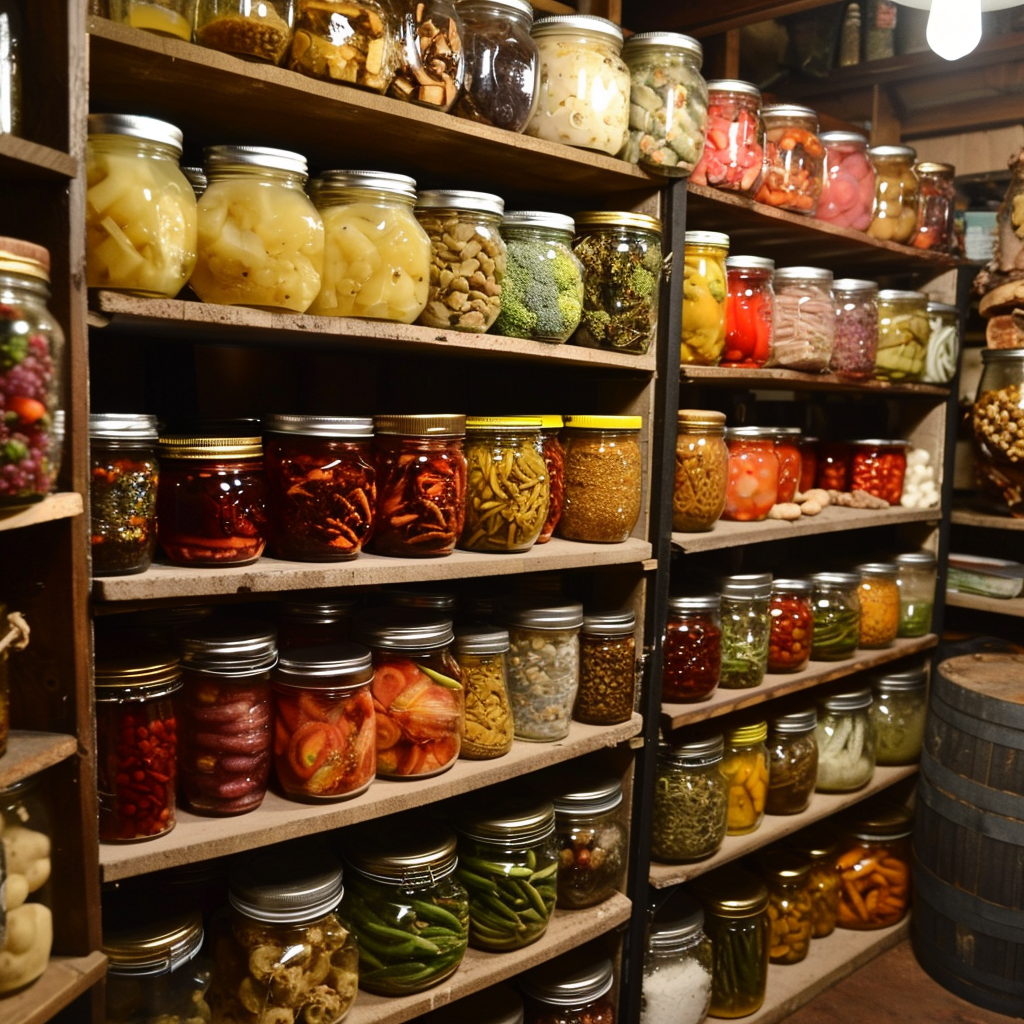
Safety Considerations
When building and maintaining a food storage system for off-grid living, there are certain safety considerations to keep in mind.
Proper Storage Conditions
To maintain the quality and safety of your stored food, it is important to store it in appropriate conditions. This includes keeping the food in a cool and dry location, away from direct sunlight and extreme temperature fluctuations. Some food items may also require specific storage conditions, such as refrigeration or freezing, so it is important to follow the recommended guidelines for each type of food.
Preventing Food Spoilage
Proper handling and storage techniques are essential for preventing food spoilage. This includes washing fruits and vegetables before storage, using airtight containers to prevent moisture and air exposure, and regularly inspecting stored food for signs of spoilage. Additionally, it is important to avoid cross-contamination by storing different types of food separately and ensuring that containers are properly sealed to prevent the transfer of odors.
Managing Pests and Rodents
Pests and rodents can pose a threat to your food storage system, so it is important to take measures to prevent infestations. This includes storing food in sealed containers that are not easily accessible to pests, regularly inspecting the storage area for signs of pests or damage, and taking appropriate measures to eliminate any infestations that may occur.
Organizing and Maintaining
Once you have established your food storage system, it is important to organize and maintain it regularly to ensure its effectiveness.
Labeling and Inventory Management
Proper labeling and inventory management are essential for staying organized and keeping track of your stored food. Label each container with the contents and the date of storage to ensure that you are using the oldest items first. Additionally, keep an inventory list of your stored food and periodically update it to reflect any changes or additions.
Utilizing Storage Space Effectively
Storage space can be limited, especially in off-grid living situations. Therefore, it is important to utilize the available space effectively. Consider using stackable containers or shelves to maximize vertical space, and use storage solutions that are modular and adjustable to accommodate different types and sizes of food containers.
Regular Check-ups and Replenishment
Regularly checking the condition of your stored food is an important part of maintaining your food storage system. Inspect the containers for any signs of spoilage, damage, or pest infestations, and replace any items that have reached their expiration dates. Additionally, periodically replenish your stored food to ensure that you always have a well-stocked and diverse food supply.
Conclusion
Living off-grid offers a unique and rewarding lifestyle, but it also comes with its challenges. Building a food storage system plays a crucial role in ensuring food security, coping with emergencies, and promoting long-term sustainability. By implementing proper food storage and preservation techniques, you can reduce your dependency on commercial food sources, save money, and enhance your overall health and nutrition. Whether you choose to can, dehydrate, or freeze your food, a well-planned and organized food storage system is a valuable asset for anyone living off-grid.

